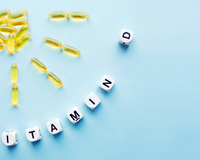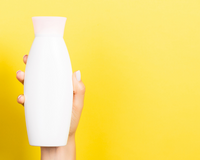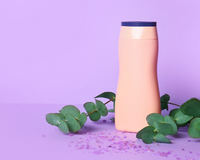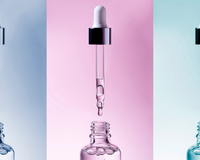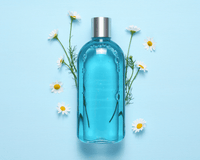What are the best skin care products for rosacea? How should skin care be compatible with rosacea treatment? There is no definitive treatment for rosacea. However, it is possible to apply treatments that reduce the effects of rosacea under the supervision of dermatologists. With rosacea, it's hard to deviate from what works when you've found a skincare routine that works. It might be tough to introduce new products because they can either enhance or aggravate your skin's health. That being said, it can be challenging to locate skincare products that are truly beneficial to your health and well-being. When it comes to finding the right skincare products, it may be a very frustrating experience.
What Are The Best Skin Care Products For Rosacea?
Dermatologists and surgeons say that it generally begins with a predisposition to blush or a tendency to blush more easily than other people. Tiny capillaries are at danger every time we cook, and are prone to breaking and spilling. After the flare-up subsides, this cyclical process of flushing and flushing destroys the skin and leaves noticeable red patches and blood vessels. It's a combination of redness and papules and pustules (papulopustular, or acne-like) . The condition can also affect the eyes (ocular rosacea), causing long-term damage to the eyes. This is why seeing a dermatologist is vital.
Dermatologists recommend using a mild moisturizing cleanser, a mineral-based physical sunscreen, and a cream-based moisturizer for rosacea sufferers. Aside from that, hyaluronic acid and glycolic acid are also excellent moisturizers. It's best to avoid toner because it might irritate the skin and cause it to seem redder than usual.
Choose products that will assist control your rosacea rather than exacerbate it by reading the ingredient labels. Some items that contain specific components might make rosacea worse. Decide to use soft, relaxing and calming skin care products instead of harsh, abrasive ones.
There are a number of cosmetic products that include niacinamide, one of the most effective substances for treating Rosacea. When used as a cream, azelaic acid can help decrease acne-related redness. As rosacea is triggered by UV damage, it's critical to wear sunscreen every day to avoid flare-ups in the future.
Dermatologists' Advice :What Are The Best Skin Care Products For Rosacea
If there are any substances you should avoid, they include alcohol, glycolic acid, benzoyl peroxide, lactic acid and sodium lauryl sulfate. Cosmetics with this ingredient list are said to cause flare-ups.
What is Rosacea?
There are several symptoms of Rosacea on the face and eyes, including redness, itching, and swelling. Erythema is characterized by swelling and redness in the center of the face. As a result of extended exposure, the nose and the chin may get larger in size.
Fair-skinned individuals are more susceptible to rosacea. Women over the age of 30 are more prone to it. According to research, there is a link between obesity, smoking/alcohol use, and heart disease.
Causes of Rosacea Disease
A number of factors contribute to the development of rosacea. Microorganisms called Demodex, which are saprophytic mites that live on the skin and settle in the sebaceous glands, were also found at a higher incidence in individuals with rosacea.
Rosacea characterizes by frequent and persistent face redness. Increased skin blood flow after sun exposure and alcohol use can worsen Rosacea, especially in individuals who eat hot, sour, and spicy meals often, or who dwell in locations with high or extremely low ambient temperatures. Inheritance of the illness is more common in those who have a family history of rosacea.
In most cases, the illness starts with a rash on one side of the face. A reddish or irritated structure similar to puberty acne may appear over time. Broomsticks may cause vasodilation in the afflicted region. Burning and stinging are common complaints among patients. In severe instances, chronic oedema and fima (regional swelling and enlargement of the nose and chin) are able to notice.
Skin Care Routine for Rosacea Patients
Sun protection and cosmetics that contain irritating ingredients should avoid in rosacea skin care. It's important to remember that the skin that develops in rosacea is dry and highly sensitive. A product's barrier function must preserve, and it must have characteristics to manage the increased skin vascular circulation.
Rosacea patients often complain of searing irritation, which is caused by a breakdown in the skin's barrier function. A protective layer of oils and epidermal cells situated at the outermost part of the skin should preserve all skin care products. Products should include characteristics that preserve and restore the skin's natural barrier system.
Rosacea sufferers should be able to minimize and control their symptoms with skin care products that assist medical treatment. Even while rosacea shares some clinical similarities with acne, it is a completely distinct skin condition. The skin care treatments used to treat acne is not avaliable for rosacea sufferers, as a consequence. Astrogens and skin sebum regulators used to treat acne are therefore not appropriate. Patients with rosacea should avoid products that contain tonics, menthol, and camphor because of the skin sensitivity.
Rosacea And Skin Cleaning Routine
If you have rosacea, you should only wash your face with warm water and avoid using hot or cold water. They should use their fingertips to apply a liquid cleanser designed for sensitive skin. To dry the face, use a soft towel. Do not apply any other cosmetics or medications to the face immediately after bathing. Allow the skin 30 minutes of rest before applying any other cosmetics or medications. If you have Rosacea, you should use special cleaners (sodium sulfacetamide and those containing sulfur can be example).
As soon as you've finished washing up, apply your moisturizer and makeup five to ten minutes after taking your prescription. To reduce skin irritation, avoid products that include alcohol, menthol, peppermint, eucalyptus oil, and fragrances. Prior to using topical medications for rosacea, the skin cleans properly. It is essential that these goods are compatible with medical devices.
It should remove dead skin cells, oil, dirt and germs produced by air pollution on the skin's surface, but it should not affect the skin's flora and oil balance, according to experts.


